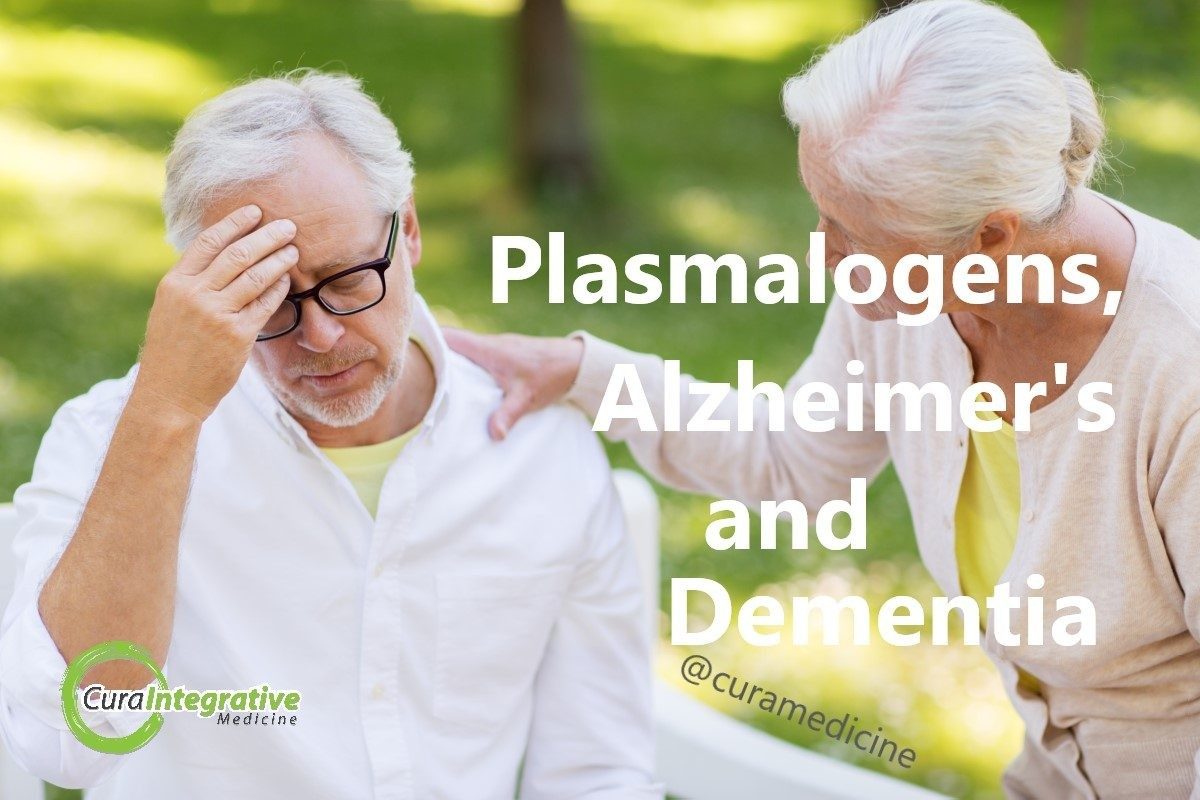Koji is a less known superfood found in a variety of macrobiotic foods. Containing Aspergillus oryzae, koji is used to make foods such as miso, amazaki and tamari. Read More…

Alzheimer's, Dementia and Plasmalogens
Posted 20 Oct '22
Plasmalogens are a naturally occurring compound called a glycerophospholipid which is found in various tissues and cell membranes
in the body, making up approximately 20% of the phospholipids total.
Research has shown that plasmalogen levels in the brain reach maximum levels around 30 years of age and decline dramatically by 70
years old. It is hypothosised that plasmalogen deficiency is associated with certain age-related neurodegenerative diseases, such as
Alzheimer’s disease (AD) and Dementia.
What Exactly are Plasmalogens?
In mammals, plasmalogens exist as plasmalogen ethanolamine (PlsEtn) and plasmalogen choline (PlsCho), with a smaller portion presenting as
plasmenylserine and phosphatidic acid. Of course each specific type is found in higher concentrations in different tissue throughout the
body.
PlsCho has been found mostly in the heart, skeletal muscle and mature spermatozoa, while PlsEtn are more widely distributed throughout
the nervous system, kidneys, heart, certain blood cells and the brain.
More importantly the PlsEtns is found at concentrations of approximately 60% to 90% of the gray and white matter in the frontal
cortex of the brain.
What Foods are High In Plasmalogens?
Plasmalogens are mostly biosynthesised in the body from nutritients consumed in a wholefood diet, however, a small amount is also
obtained through dietary sources such as scallops and other seafood, cattle, pig, and chicken.
Marine invertebrates have shown to have the highest PlsEtn content as they are enriched with DHA and EPA, while land animals predominantly
contain eicosatetraenoic acid (ETA). These findings suggest marine-derived plasmalogens are preferable in dementia and Alzheimer's due
to their higher omega-3 fatty acid content.
Dementia and Alzheimer's Disease
One of the most devastating conditions of the aging brain is dementia. As society ages and populations change, dementia is now the second
leading cause of death in Australia. Not only is dementia the single greatest cause of disability in people aged 65 years and older, but it
also causes heartbreaking and frustrating interactions with family members.
Dementia is used to describe a progressive decline in various behavioural parameters such as thinking, memory, social functioning, and the
ability to perform everyday tasks.
Alzheimer’s (AD) is the most common form of dementia and accounts for 60–80% of all dementia diagnoses globally.
The aetiology and mechanisms of AD development have not been completely defined; however, the increased level of inflammation and oxidative
cellular stress is considered to be neuropathological hallmarks. Moreover, given the brain is highly enriched with cholesterol
and phospholipids, emerging evidence suggests altered lipid metabolism is an additional biochemical and morphological feature of AD.
Plasmalogens in Alzheimer’s Disease
A 40% reduction of plasmalogens was observed in elderly patients compared to young subjects, suggesting a lack of plasmalogens is partly
due to the oxidative process of aging. As previously discussed PlsEtns is found at concentrations of approximately 60% to 90% of the
gray and white matter in the brain.
Several studies show promising support for patients with AD and other neurological conditions like parkinsons disease or metabolic disease.
Of course research shows earlier intervention is better than late stage treatment.





